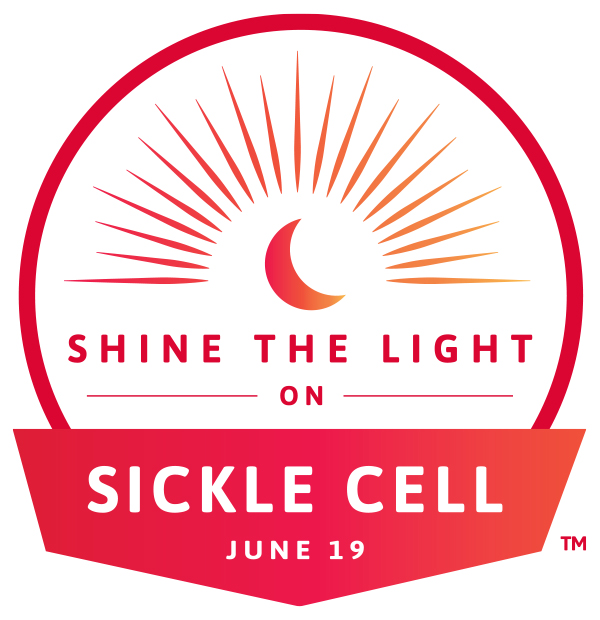
World Sickle Cell Day
Help NICHQ Raise Awareness and Improve Care for Patients Living with Sickle Cell Disease
 Sickle cell disease (SCD), an inherited blood disorder that is more prevalent in individuals of African and Latinx/Hispanic descent, affects approximately 100,000 Americans, and Sickle Cell Trait affects an estimated 2 million people. People living with SCD experience acute pain crises, dangerous infections, and other serious health problems that can damage every organ in the body, requiring providers who are knowledgeable and understanding.
Sickle cell disease (SCD), an inherited blood disorder that is more prevalent in individuals of African and Latinx/Hispanic descent, affects approximately 100,000 Americans, and Sickle Cell Trait affects an estimated 2 million people. People living with SCD experience acute pain crises, dangerous infections, and other serious health problems that can damage every organ in the body, requiring providers who are knowledgeable and understanding.
- About 1 in 13 African Americans carry the sickle cell trait.
- There are approximately 2,000 babies born with SCD annually in the U.S.
- Most states screen for SCD along with 29 of the 35 conditions recommended by the Advisory Committee on Heritable Disorders in Newborns and Children.
NICHQ joins the Health Resources and Services Administration (HRSA) in recognizing World Sickle Cell Day and participating in the Shine the Light on Sickle Cell initiative by raising awareness about sickle cell disease and sickle cell trait and the unique health challenges people living with SCD face.
As we continue our work to ensure that all children achieve their optimal health, NICHQ is dedicated to creating opportunities for healthcare providers to improve treatment and care for people living with this complex condition.
Join our efforts to bring attention to the unique experiences and challenges of people living with SCD and the variety of resources available to health care professionals! Use the hashtags #WorldSickleCellDay2022 and #ShinetheLightonSickleCell2022 to help raise awareness on social media about sickle cell disease and sickle cell trait, and check out the below learning opportunities, discussion guides, and other helpful tools and resources about sickle cell disease.

Reporting to Congress
The Health Resources and Services Administration launched the Sickle Cell Disease Treatment Demonstration Program more than ten years ago. As we push to enhance access to services for people living with Sickle Cell Disease and improve and expand provider and patient education, NICHQ worked with five regional teams from across the country to deliver a comprehensive report to Congress detailing outcomes from the Sickle Cell Disease Treatment Demonstration Regional Collaboratives Program (SCDTDRCP).
The 2017-2021 SCDTDRCP addressed clinical and psychosocial needs to improve the health and quality of life of people with sickle cell disease. The Regional Coordinating Centers conducted numerous regional activities in Program priority areas. These activities, along with the Program recommendations, will inform and enhance future efforts to provide quality care for people living with this complex condition.
- Read our Executive Summary providing an overview of the 2017-2021 SCDRCTDP and its objectives.
- Read a Model Protocol that includes best practices for caring for people with sickle cell disease and details strategies and lessons learned from the 2017-2021 SCDRCTDP.
- Download a Compendium of Tools and Materials that share helpful resources and promising practices for improving sickle cell disease support.
RESOURCES FOR HEALTH PROFESSIONALS, PARENTS, AND CAREGIVERS
- Guide for Community-Based Organizations
- Guide for Providers to Use with Patients
- Sickle Cell Disease Infographic for Patients and Caregivers
Watch the first and second webinars in an engaging, interactive series where we shared our findings from a series of interviews with patients and providers and panelists model conversations among providers, families, and advocates about reasons for and solutions to missed sickle cell disease healthcare appointments.
Reducing Missed SCD Appointments and Improving Patient/Provider Relationships
People living with sickle cell disease and their families and caregivers miss critical healthcare appointments for a variety of reasons. According to a 2019 national study, a majority of patients reported missing a clinic appointment in the previous 12 months.
In disseminating the study results, NICHQ interviewed patients, caregivers, and providers – and found that systemic and individual bias and racism contributed to poor patient/provider relationships, which in turn undermined solutions to appointment attendance problems.
While the relationship between patients or caregivers and their providers is not the main problem, improving that partnership can be a big part of the solution.
Share Your Story
Sickle Cell Disease can impact the entire family and is best treated with proactive, coordinated care from a team of professionals. Do you have a story to share? We want to hear it!
We want to hear from parent and caregiver advocates, physicians, and other public health professionals about how SCD has impacted your child's life, examples of improvement strategies in action, and how communities are coming together to improve access to care.

Improving Sickle Cell Disease Care - Hemoglobinopathies Coordinating Center
NICHQ, with partner organization Abt Associates, is supporting a Hemoglobinopathies National Coordinating Center (NCC) to help SCD treatment demonstration program grantees — including community and federally qualified health centers — address structural and systemic barriers in their regions and implement evidence-based SCD care.
In this most recent award of HRSA's Sickle Cell Disease Treatment Demonstration Program, NICHQ supports five regional coordinating centers (RCCs) that provide coordinated, comprehensive, culturally competent, and family-centered care. Teams are comprised of sickle cell centers, primary care sites, community-based organizations, parents, and patients. Learn more >

